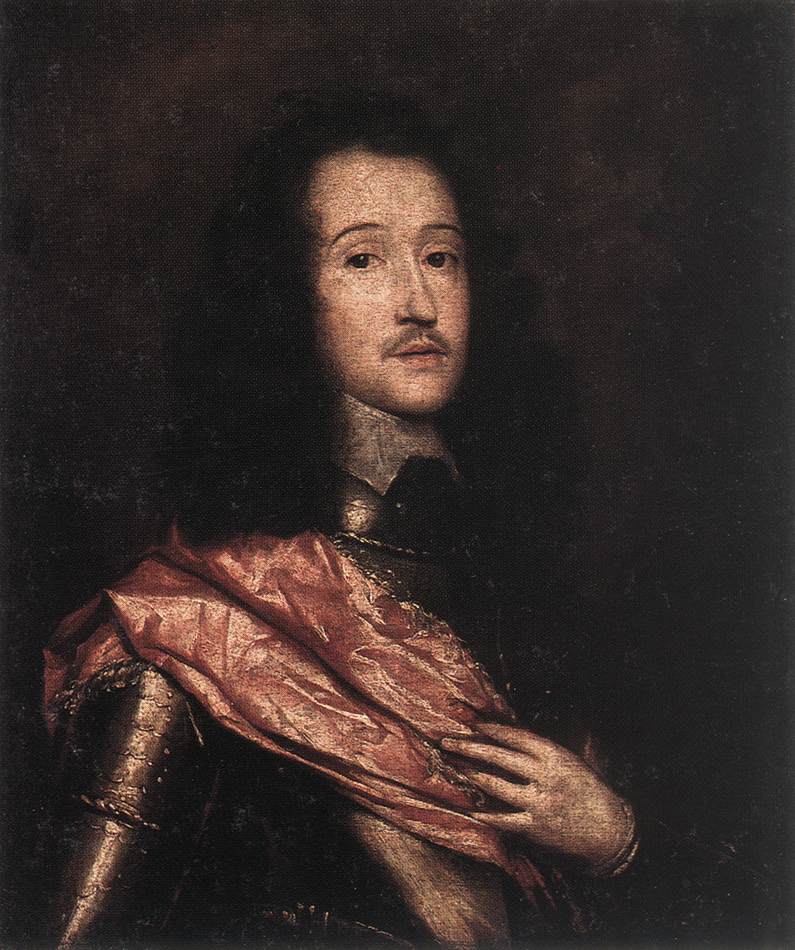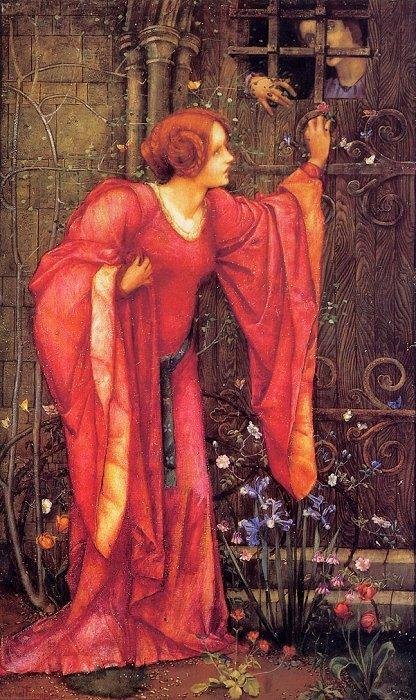To Althea, From Prison
By Richard Lovelace
When Love with unconfinèd wings
Hovers within my Gates,
And my divine Althea brings
To whisper at the Grates;
When I lie tangled in her hair,
And fettered to her eye,
The Gods that wanton in the Air,
Know no such Liberty.
When flowing Cups run swiftly round
With no allaying Thames,
Our careless heads with Roses bound,
Our hearts with Loyal Flames;
When thirsty grief in Wine we steep,
When Healths and draughts go free,
Fishes that tipple in the Deep
Know no such Liberty.
When (like committed linnets) I
With shriller throat shall sing
The sweetness, Mercy, Majesty,
And glories of my King;
When I shall voice aloud how good
He is, how Great should be,
Enlargèd Winds, that curl the Flood,
Know no such Liberty.
Stone Walls do not a Prison make,
Nor Iron bars a Cage;
Minds innocent and quiet take
That for an Hermitage.
If I have freedom in my Love,
And in my soul am free,
Angels alone that soar above,
Enjoy such Liberty.
Richard Lovelace
The dashing, handsome soldier and Cavalier poet of the mid-1600s
Lived from 1617 to 1657

The Cavalier Poets



Robert Herrick
Thomas Carew
John Suckling

God Save the King!
Richard Lovelace
Instead of tackling issues like religion, philosophy, and the arts, cavalier poetry aims to express the joy and simple gratification of celebratory things much livelier than the traditional works of their predecessors.
The English Civil War
Conflict between Parliamentarians ("Roundheads") and Royalists ("Cavaliers")


Result
- King Charles I executed
- Exile of Charles II
- Establishment of The Commonwealth of England under Oliver Cromwell
Lovelace Imprisoned

Written during his first imprisonment in 1642
Imprisoned for pro-royalist actions
Never fought in the war
Meter
When LOVE | with UN| conFIN| -èd WINGS. (iambic tetrameter) A
HOVers| with IN | my GATES (iambic trimeter) B
And MY | divINE | AlTHE | -a BRINGS (iambic tetrameter) A
To WHIS | -per AT | the GRATES (iambic trimeter) B
Conventional Wisdom
Lovelace's poem offers a powerful statement about the powers of the human mind. The speaker essentially says that even though he is in prison, he is freer than just about everybody and everything else—birds, fish, winds. This intriguing paradox makes sense once we realize that the poem defines true freedom as the ability to re-imagine one's own situation.

We can re-imagine some pretty awesome things
Love tinged with confinement
When Love with unconfinèd wings
Hovers within my Gates,
And my divine Althea brings
To whisper at the Grates;
When I lie tangled in her hair,
And fettered to her eye,
The Gods that wanton in the Air,
Know no such Liberty.
Friendship tinged with loss
When flowing Cups run swiftly round
With no allaying Thames,
Our careless heads with Roses bound,
Our hearts with Loyal Flames;
When thirsty grief in Wine we steep,
When Healths and draughts go free,
Fishes that tipple in the Deep
Know no such Liberty.
Worship tinged with servitude
When (like committed linnets) I
With shriller throat shall sing
The sweetness, Mercy, Majesty,
And glories of my King;
When I shall voice aloud how good
He is, how Great should be,
Enlargèd Winds, that curl the Flood,
Know no such Liberty.
Love allow us to see things as they truly are
Stone Walls do not a Prison make,
Nor Iron bars a Cage;
Minds innocent and quiet take
That for an Hermitage.
If I have freedom in my Love,
And in my soul am free,
Angels alone that soar above,
Enjoy such Liberty.
the poem defines true freedom as the ability to re-imagine one's own situation.
the poem defines true freedom as the ability to re-imagine one's own situation.
the poem defines true freedom as limitation and sacrifice inherent in romantic love, friendship, and worship.
Love reveals this to us.
To Althea, From Prison by Richard Lovelace
By Timothy Krell
To Althea, From Prison by Richard Lovelace
- 790



